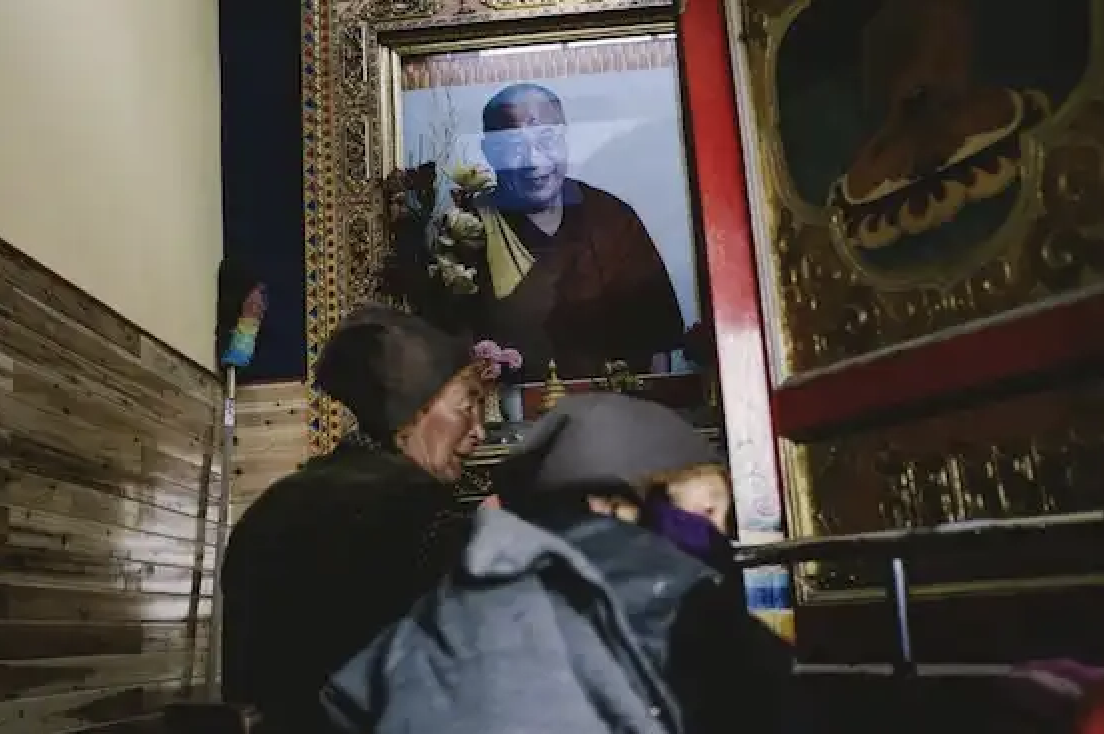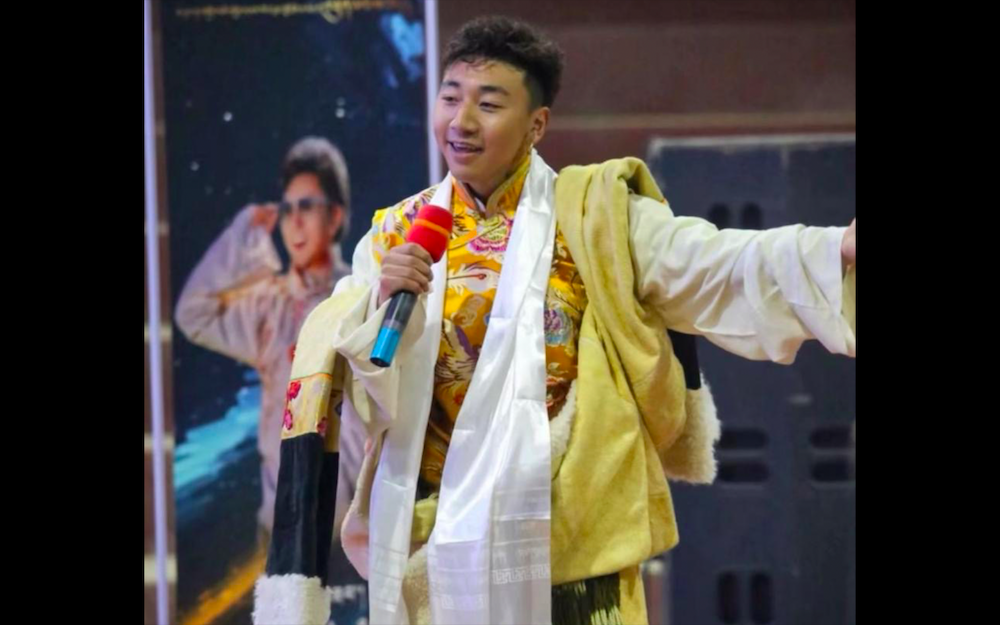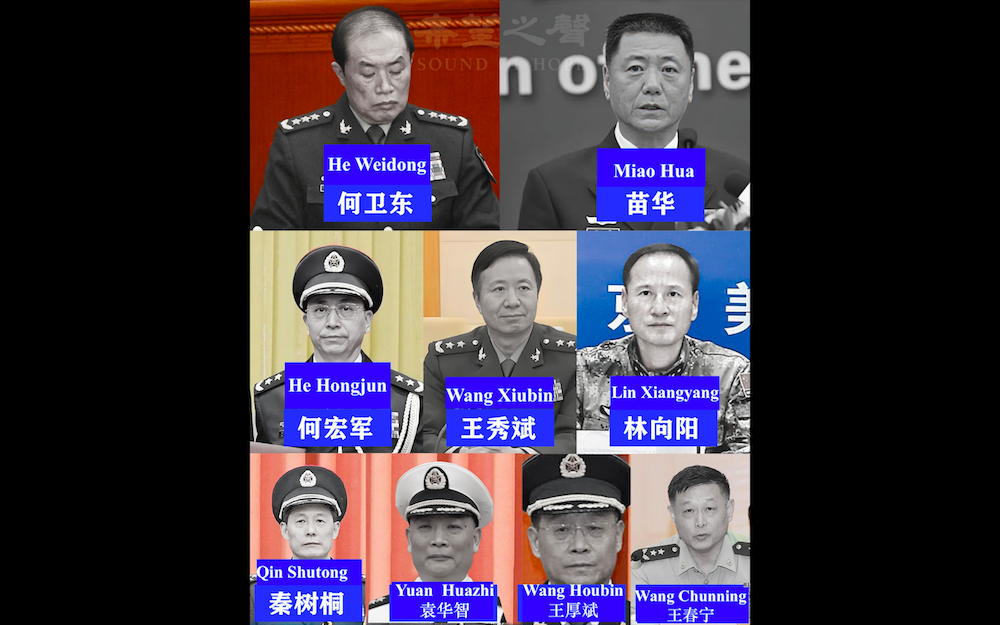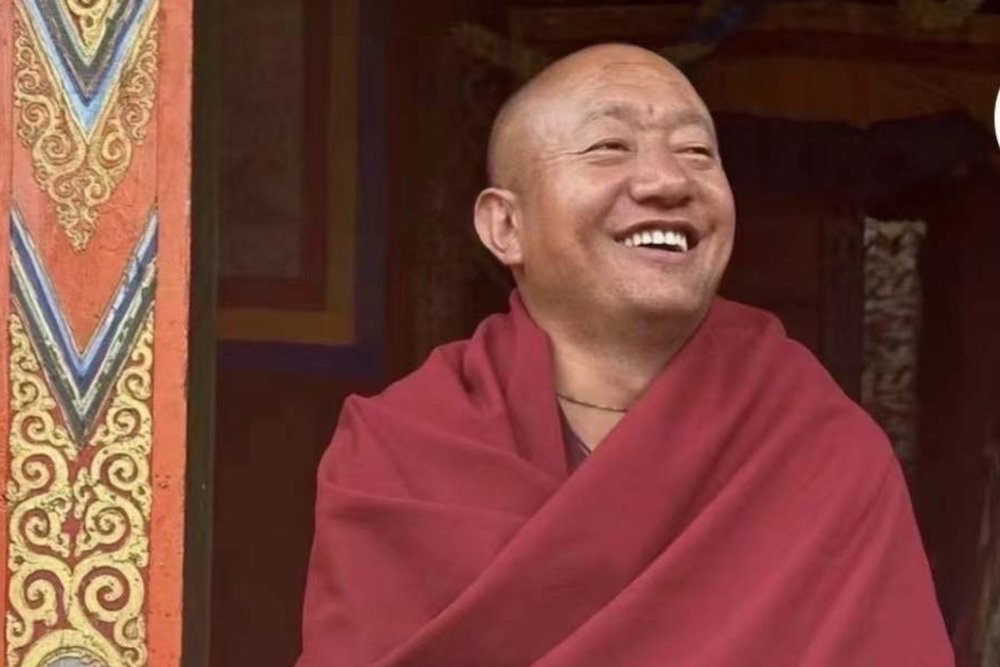 ARLINGTON, VIRGINIA April 12 – The world’s first official license plate honoring the Tibetan people and their endangered homeland was unveiled recently during a gathering of the Washington DC area’s Tibetan exile community.
ARLINGTON, VIRGINIA April 12 – The world’s first official license plate honoring the Tibetan people and their endangered homeland was unveiled recently during a gathering of the Washington DC area’s Tibetan exile community.
The announcement of Virginia’s new “Friends of Tibet” special license plate http://www.tibetanculture.org/about/work/va_plate2.htm was greeted with excitement by hundreds of local Tibetans celebrating “Losar” or Tibetan New Year.
The colorful design for the new plate, authorized by Virginia’s General Assembly last year, incorporates the rising sun and white peaks of the Himalayan mountain nation familiar to many from the ubiquitous “Save Tibet” bumper stickers seen on cars from California to Maine.
Pointing to a prototype, Karma Zurkhang, president of the Capital Area Tibetan Association (CATA), encouraged every Tibetan present to lead the way in signing up for the new license plate for their own cars.
“We have a new way to tell the world about Tibet,” said Zurkhang. “So let them know!”
Turning to the “injis” (westerners) attending the crowded Losar party, Zurkhang urged them to become Virginia’s first official “Friends of Tibet” supporters. “We look forward to seeing ‘Friends of Tibet’ on thousands of cars in Virginia,” said Zurkhang, “And not just in Virginia, but all across America!”
Carrying his American-born son Tenzin in his arms, Kalden Lodoe of Falls Church picked up a form to apply for the new license plate. “The freedom of speech that this license plate represents,” he said, “this freedom is denied in my homeland under Chinese rule.”
“Here, it’s an excellent way to tell everyone that we’re proud to be Tibetan,” Mr. Lodoe continued, “and it’s excellent that we can do something like this in America.”
The evening’s guest of honor, Lodi Gyari, the Special Envoy of His Holiness the Dalai Lama, pointed out the plate’s potential to speak loudly on behalf of Tibet’s endangered culture.
“Even something simple like this plate, I think, can help raise awareness of the plight of our people — and demonstrate the concern and compassion of those who are friends of freedom and non-violence.”
Exiled from their Himalayan homeland by the brutal Chinese invasion and occupation of Tibet in the 1950s, the local Tibetan community has grown steadily since a small number of Tibetan families were granted permission by the U.S. Congress to immigrate here from refugee communities in India in the early 1990s.
Like other immigrants, Virginia’s Tibetans have worked hard for success in their adopted land — and they are quick to defend America. Local Tibetans organized the first of many prayer vigils on the National Mall immediately following the Sept. 11th attacks in New York and here in Arlington.
“They stepped forward in our time of need. I’d like to think we can do the same for them,” said Sen. Patsy Ticer (D), who sponsored the legislation authorizing the Friends of Tibet license plate in Virginia’s Senate. Sen. Ticer’s district is home to many of Northern Virginia’s Tibetan families, as is the district of Del. Brian Moran (D), the bill’s co-sponsor in the House of Delegates.
To help sway Virginia’s legislators, Namkha Tenzin drove down last year to Richmond to testify for the bill on behalf of the Tibetan community. Making his first foray into Virginia state politics, Mr. Tenzin joined Sen. Ticer after the successful vote to thank her for what he called “this gift of support from our Virginia friends.”
The legislation (SB1230) authorizing the “Friends of Tibet” license plate makes it one of a series of special “revenue sharing” license plates issued by the state of Virginia, which allows some of the extra revenue generated by sales of the plates to be used by a Virginia-based 501(c)3 non-profit, the Conservancy for Tibetan Art & Culture, for the benefit of Tibetan refugees.
Although fewer than 20,000 Tibetans live in North America, their impact on North American culture has been profound. Today, virtually every large city in North America has one, if not several centers for the study of Tibetan Buddhism. Locally, the Smithsonian Institution’s “Tibetan Culture Beyond the Land of Snows” folklife program in 2000, organized jointly with the Conservancy for Tibetan Art & Culture, attracted more than 1.5 million visitors and sparked a surge of interest in Tibet’s culture and religion that continues to be felt today.
Conservancy chairman Greg Kruglak of McLean and board member William Shuyler, an Alexandria resident who worked with Sen. Ticer on the legislation hope that the “Friends of Tibet” campaign will benefit the many Tibetan families they’ve come to know in Virginia — especially the children who’ve never seen or set foot in their homeland.
“Whatever hope and help we can offer to our Tibetan friends,” said Mr. Kruglak, “even if it’s something small like friendly words on a license plate, can still be an encouragement, and maybe even a step forward in their struggle for survival.”
The Conservancy’s Kruglak and Shuyler hope that some day this “something small” will become become something big. Like CATA’s Zurkhang, they would be pleased to see other states adopt their own Friends of Tibet-style plates. Beyond that, they hope that the higher visibility created by widespread adoption of the new plate will attract new support for the exile community.
“Eventually,” said Mr. Shuyler, “we hope to see a center here for the local Tibetan community — a refuge for these refugees, if you will — a place for the children to attend Sunday school and study their language and culture, and a center for families to gather and celebrate their heritage.”
“A place they can call their own,” he added, joining hands with his Tibetan friends as they drew him into a traditional circle dance winding its way around the rented VFW hall.
“Their culture is threatened with extinction on the other side of the planet,” said Mr. Kruglak, sitting behind a group of red-robed monks from the 600-year old Drepung Loseling monastery — once the world’s largest monastic university and home to 10,000 monks, before it was destroyed by the Chinese.
“If we can’t stop that, then maybe we can find a way to protect it here.”
For more information — or if you’d like to learn more about creating a Friends of Tibet license plate in your own state — please contact the Conservancy for Tibetan Art & Culture
To get your own Friends of Tibet license plate — or a souvenir version if you don’t live in Virginia — you can download a copy of the application form
Conservancy for Tibetan Art & Culture www.tibetanculture.org
703.755.1533
Contact persons:
Gregory Kruglak greg@global-voices.net
Bill Shuyler wshuyler@comcast.net









